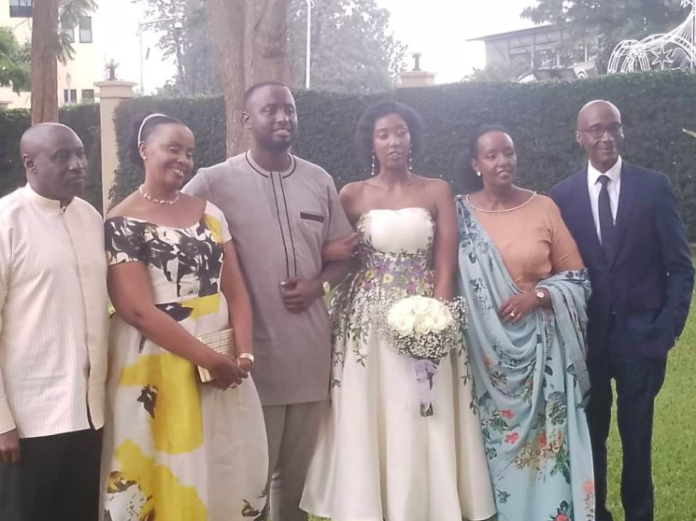The release of Emmanuel Gasana, a former Governor and Police Chief, from prison to attend his son’s wedding in Uganda has sparked a conversation about the legal provisions and transparency of the Rwanda Correctional Service (RCS). The RCS, along with Rwanda’s National Public Prosecution Authority, confirmed that Gasana’s temporary release was legally sanctioned, emphasizing that such permissions are granted under specific circumstances as outlined in the 2022 law governing correctional services.
Emmanuel Gasana, who once led the police and the Eastern Province, was granted a five-day leave starting December 21, 2023, to participate in his son’s wedding, which notably involved the family of General Kale Kayihura, the former Ugandan police chief. This event has raised questions about the impartiality and accessibility of such permissions for all prisoners, including those who may not align with the current government or the ruling Rwandan Patriotic Front (RPF) party.
The law cited for Gasana’s release allows for prison leave for various reasons, including attending court hearings, medical treatment, participating in approved work, responding to official summons, and other reasons deemed appropriate by the correctional service’s administration. The Chief Prosecutor, Aimable Havugiyaremye, and the Commissioner General of the RCS, Evariste Murenzi, affirmed that Gasana’s release followed these legal provisions, adding that this case is not an isolated incident. Vincent Sekimondo, another detainee, was mentioned as having been granted a two-day leave for familial bereavement, further illustrating the application of this policy.
Critics and observers, particularly on social media, have questioned whether the same privileges would extend to political dissenters or individuals outside the political and ideological favor of the RPF. The case of Gen. Frank Rusagara Kanyambo, who was reportedly denied a final phone call with his dying wife in the UK, serves as a poignant contrast in the discourse around prison leaves and human rights considerations in Rwanda.
Gasana, who faces charges of corruption and abuse of office, denies all accusations, framing his actions as potential errors but not criminal offenses.
































































